
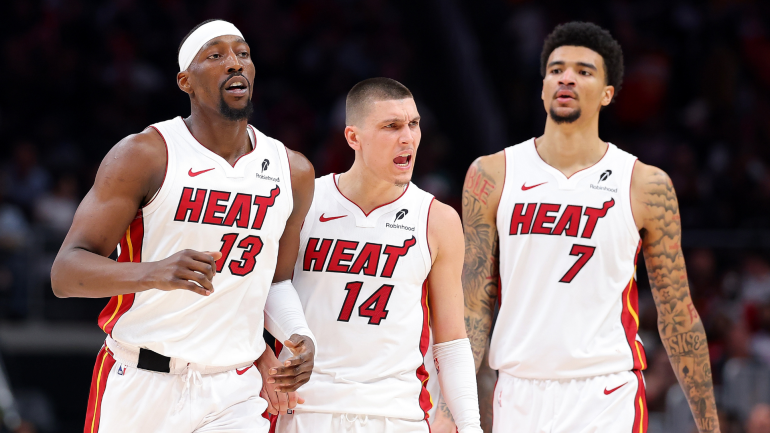
The San Antonio Spurs were the picture of NBA stability for the better part of 20 years. Then Tim Duncan retired. Within two years, LaMarcus Aldridge had attempted to force a trade and Kawhi Leonard actually succeeded in doing so. The Spurs are only now emerging from the mediocrity that followed, and the biggest reason they’ve done so is not some internal recalibration, but a few lucky ping pong balls on lottery night. NBA team cultures are fickle. The league changes quickly. If you’re standing still, you’re probably moving backward.
Which brings us to the Miami Heat, a team so confident in its culture that in 2023 it literally started wearing a jersey with the words “Heat Culture” embroidered on the chest. For three decades or so, Heat Culture was nearly impenetrable. The Pat Riley era has included more trips to the NBA Finals (seven) than lottery finishes (six).
They practiced harder than everyone else. They were better conditioned than everyone else. They first prioritized bringing in players who naturally gravitated toward these things more than everyone else. Eventually, they grew so comfortable in their methods that they got better at rehabilitating troubled yet talented players than everyone else as well. In many ways, the enduring inevitability of Heat Culture was more impressive than what Gregg Popovich built in San Antonio. Miami’s success wasn’t as tied to a single player as San Antonio’s was to Duncan. The baton was passed every 10 years or so, from Alonzo Mourning to Dwyane Wade and Udonis Haslem to Bam Adebayo now.
Nobody maintains an identity for three decades. It shouldn’t be possible. The Heat did it. But for the first time in three decades, cracks are finally starting to show after being swept out of the first round by the Cavaliers.
The hardline stance they, and more prominently longtime power agent Aaron Goodwin, took in trade negotiations for Damian Lillard ultimately ended with Lillard in a Milwaukee Bucks uniform. Some of their more recent player acquisitions, most notably Terry Rozier, haven’t acclimated successfully to Miami.
A core player, Tyler Herro, was attacked so mercilessly both on defense and in the press by Cleveland that he had to swat back at Darius Garland through the media. Jimmy Butler talked trash to Boston a year ago as the Celtics made quick work of the Heat in the first round and Riley didn’t like it. Heat Culture, apparently, does not involve talk that you can’t back up.
Miami’s season ended in pathetic fashion on Monday when the Cavaliers roasted the Heat, 138-83 — the largest margin of defeat in franchise history. It was the sort of loss you just never see out of the Heat in the playoffs. It felt, to the naked eye, as though they’d quit. Charles Barkley certainly thought so on TNT’s halftime show. “This is quitting at its finest right here,” the Hall of Famer said. Normal teams quit. Historically, the Heat haven’t.
Butler obviously did in his final months with the team, which leads us to his exit. The feud between star and team led not only to a poor trade, but real questions about how Heat Culture fits into the NBA in 2025.
As the beginning of his stint with the Golden State Warriors has proven, Butler is still capable of All-NBA-caliber play. A year ago, the Heat not only elected not to offer him a contract extension, but Riley publicly challenged him to play more games if he wanted to earn one.
“That’s a big decision on our part to commit those kinds of resources unless you have somebody who’s going to be there and available every single night,” Riley said at his end-of-season press conference in 2024. “That’s the truth.”
One of two things happened here, and neither paints the Heat in the best light. The first possibility is that the Heat just underestimated Butler’s value. Perhaps they viewed the 2023 NBA Finals run as a last hurrah for Butler’s days as a superstar. Maybe, after consecutive journeys through the Play-In Tournament, they had just organizationally decided to double down on the regular season in an effort to avoid it moving forward, and felt that even if Butler was still a star in high-leverage moments, he couldn’t bring it enough on a night-to-night basis to justify a max contract. Either way, at the very least, Butler currently looks worthy of the two-year max commitment that the Warriors gave him, and was therefore theoretically capable of still giving the Heat star-caliber performance this season.
The likelier explanation here was that Riley hoped needling Butler at his end-of-season media availability would coax some sort of change in behavior or approach that could convince him that he deserved that contract extension. It wouldn’t be the first time Riley tried this tactic. The subtext of his press conference following the 2014 NBA Finals, for instance, was effectively a challenge to LeBron James and his remaining superstars not to leave in free agency. “This stuff is hard,” Riley said. “And you’ve got to stay together if you got the guts. And you don’t find the first door and run out of it.”
James obviously left. He vented some frustrations afterward about the ways he was treated as he did, though named Riley only in some of the smaller issues. James was almost certainly outbound regardless. As he’s very publicly stated, his decision to return to Cleveland was about more than basketball. But it points to a pretty straightforward shift in basketball culture that the Heat have been slow to adjust to. Players are not as comfortable with these sorts of public challenges as they used to be, nor do they tend to enjoy the rigidity of the sort of organizations that issue them.
That should have been apparent with Butler. The sequence of events that ended with him arriving in Miami began with Minnesota refusing to give him the contract he wanted. He infamously responded quite poorly to that. The Heat knew who Butler was, for better and for worse. They had to know that they only had two options: either extend him and put him in a position to succeed, or trade him over the summer from a position of strength because there was just no reason to believe that Butler, of all people, would respond well to any sort of “prove it” gauntlet tossing.
The Heat treated Butler as they would any other player. They feuded with him and suspended him and argued over destinations with him as his value cratered. The end result, knowing what we know now, was a remarkably poor trade. A single first-round pick that won’t even be in the lottery. A 30-year-old who’s worse than Butler and plays his position. A couple of spare parts that got kicked around in the multi-team package. Finding Davion Mitchell in the rubble was a win, but now they have to pay him. It was a rare bad trade for the Heat.
Now they’re just in a bad position overall. They have a 37-win roster. They have Golden State’s first-round pick this year, but not their own, and then they owe a 2027 pick to Charlotte. That leaves them shorthanded if they intend to seek out a star to replace Butler on the trade market as they so often have in the past. Their young players, outside of Kel’El Ware, have lost their luster. If the Blazers weren’t interested in Jaime Jaquez or Nikola Jović for Lillard, why would the next team trading a star do so now, two years later, when neither has proven much? The Heat have worked miracles on the transaction market before, but that’s bringing a spork to a gun fight. No matter how long the rumors persist, Giannis Antetokounmpo probably isn’t walking through that door.
Maybe an older star, one the Rockets and Spurs and Thunder don’t want to go all-in for, might be possible. But then they’d just be kicking the can down the road. Kevin Durant helps next year, but he doesn’t set the Heat up for the sort of sustained success that they’re used to. If they wanted him, why wouldn’t they have just traded for him with Butler at the deadline? New Orleans is under new management, so Zion Williamson might be gettable. Getting him into better shape, a Miami speciality, would go a long way. But how many injuries is too many? Is his body still salvageable?
The Heat could go into 2026 free agency armed with meaningful cap space, especially if Andrew Wiggins declines his $30 million player option or they trade him for an expiring deal first. That class just isn’t as exciting as it was a year ago. Luka Dončić and De’Aaron Fox already have new homes, and they’re in far better basketball shape than the Heat are right now.
Jaren Jackson Jr. is in a trickier situation. If he makes an All-NBA Team, he’s super-max eligible and probably re-signs over the summer. It gets more complicated if he doesn’t, because the Grizzlies would need to carve out cap space to renegotiate and extend him if they plan to get close to his fair value. They started that process by trading Marcus Smart at the deadline. But even if Jackson hits the open market, he’s not exactly a fit next to Adebayo and Ware. The Heat would probably also face stiff competition for his services. If LeBron James retires, Jackson slides so easily into the Laker front court. Dončić would probably be a pretty effective recruiter for a star big man.
Trae Young might be available. Reporting has cast doubt over his future with the Hawks, but does he really appeal to Miami? Aside from the iffy fit with Tyler Herro, any player with a “worst defender in the NBA” reputation is the antithesis of Heat Culture. The star power, at least among players in their primes, dies down significantly from there.
There isn’t an obvious fix here. There isn’t a 2019 Butler or a 2010 James in the pipeline, a likely-to-be-available superstar who is both plausibly affordable to them and who would himself push to play for them. The roster fix probably takes time. The Heat have earned some benefit of the doubt on this front. They got Herro at No. 13 and Adebayo at No. 14, and while it’s still early, Ware at No. 15 looks very, very promising. Maybe they draft their next foundational piece with No. 20 from Golden State. Maybe they identify an under-the-radar player on another team who can grow into such a role.
But finding the players is only half of the battle. After three decades of unbridled success based on Riley’s old-school methods, it has to be time to reconsider whether the ways in which they’re supporting that talent still make sense. The Spurs lost their chance at extending their window beyond Duncan’s career when they failed to adapt to the stars they hoped would replace him. If the Heat go down that same path, their vaunted culture could decay just as easily. That doesn’t mean it needs to be done away with entirely, but it probably needs to evolve in some fashion to become a bit more player-friendly if it is going to be sustainable for whatever the next era of Heat basketball looks like.
This news was originally published on this post .




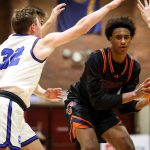

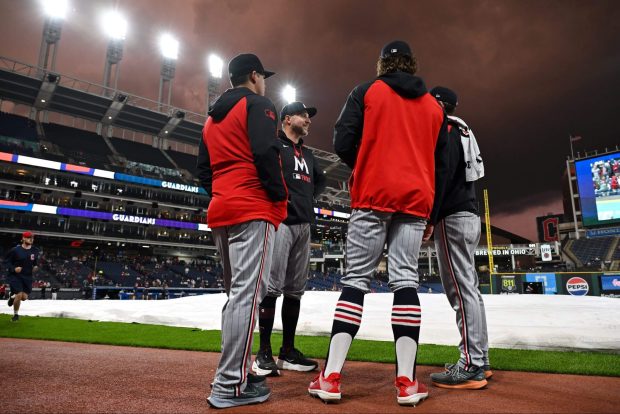
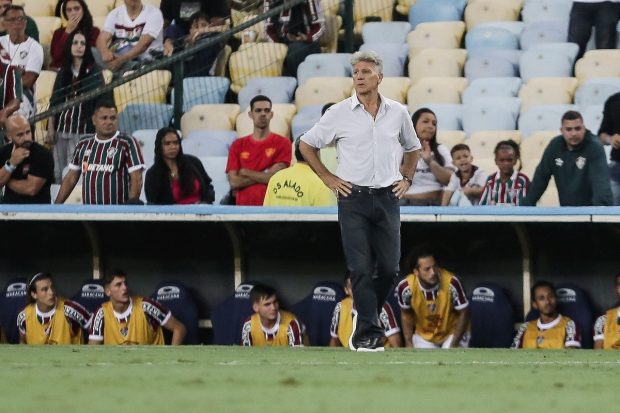

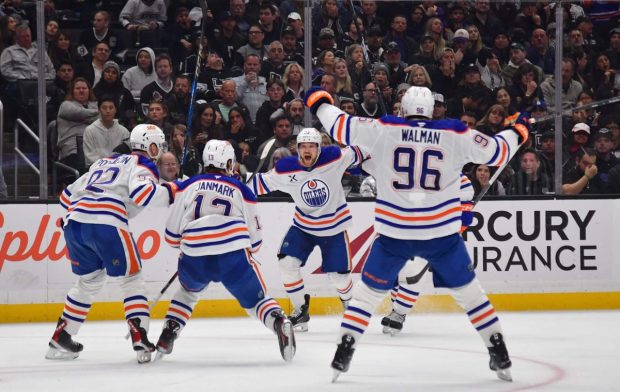
Be the first to leave a comment